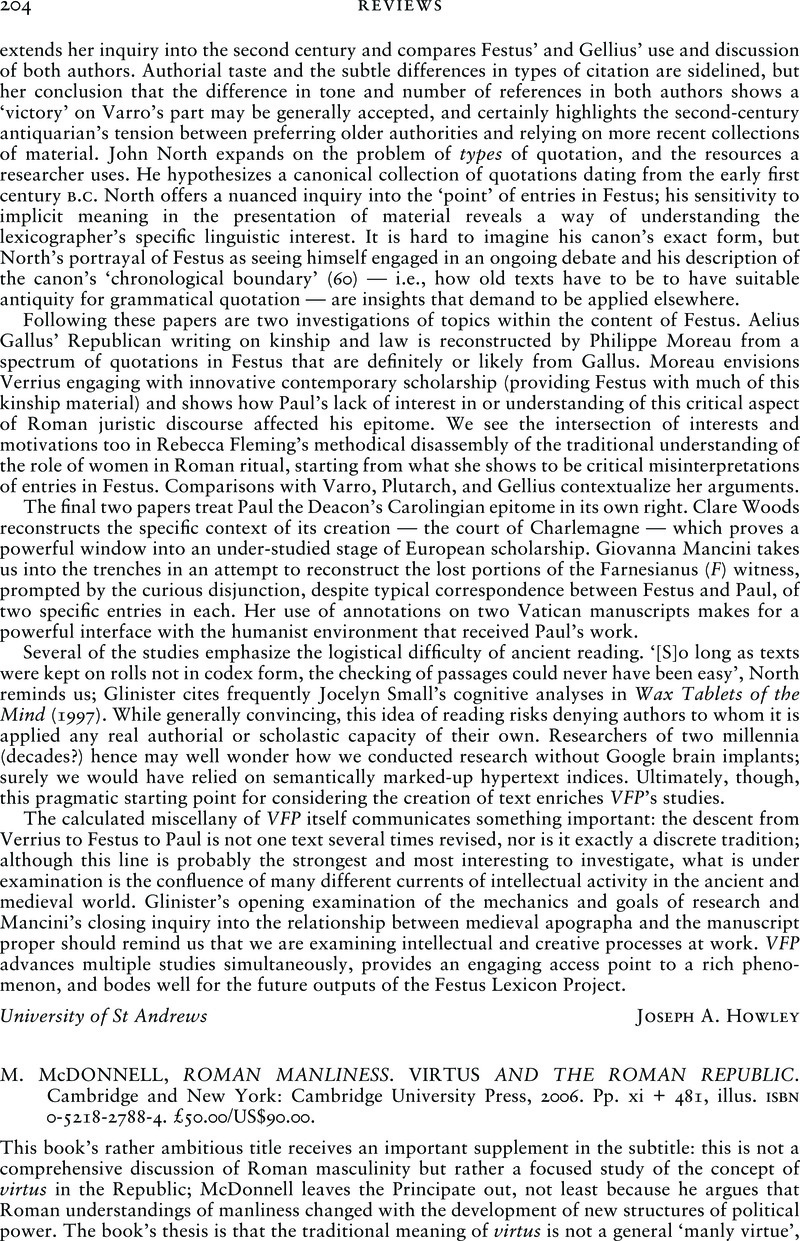Reference




OpenAI's Answer
According to Myles Anthony McDonnell, a historian and author of "Roman Manliness: Virtus and the Roman Republic," Roman manliness, or "virtus," was a crucial aspect of Roman masculinity during the Roman Republic. McDonnell argues that virtus was not primarily a moral concept, but rather a public notion of manliness that embodied the most important aspects of Roman masculinity.
McDonnell's research suggests that virtus was closely tied to the idea of martial prowess and the ability to defend the state. In fact, the concept of virtus was often associated with the ideal of the "good soldier" (Source: Cambridge University Press). This ideal was deeply ingrained in Roman culture, and Roman men were expected to demonstrate their virtus through their military service and bravery in battle.
However, McDonnell also notes that the concept of virtus was not fixed and underwent significant changes over time. For example, with the rise of Greek cultural influence, the semantic range of the word virtus expanded to include aspects of Greek masculinity, such as athleticism and intellectual pursuits (Source: Goodreads).
Furthermore, McDonnell argues that the decline of Roman manliness was closely tied to the decline of the Roman Republic itself. As the Roman Empire expanded and the role of the military changed, the traditional ideals of virtus became less relevant, and Roman men began to seek alternative ways to demonstrate their masculinity (Source: Academia.edu).
In summary, according to McDonnell, Roman manliness, or virtus, was a complex and multifaceted concept that was deeply ingrained in Roman culture and closely tied to the ideals of martial prowess, military service, and the defense of the state.
Here are some relevant images:
- Image 1: Book cover of "Roman Manliness: Virtus and the Roman Republic" by Myles Anthony McDonnell
- Image 2: Illustration of a Roman soldier, symbolizing the ideal of virtus
- Image 3: Ancient Roman coin featuring a soldier, representing the importance of military service in Roman culture
Sources:
- McDonnell, M. A. (2006). Roman Manliness: Virtus and the Roman Republic. Cambridge University Press.
- Cambridge University Press
- Goodreads
- Academia.edu
Follow Up
Related
CHAPTER 2 - Literature Review 2.1. Introduction This chapter undertakes a review of literature to
How tinted sunscreen is more superior than non tinted sunscreen? Support answer with actual journals
How did Einarr's conflict with Hálfdan unfold according to the sagas?
What philosophical ideas are discussed in Heraclitus' works according to the sources?
How did critics perceive the episode Fortunate Son in terms of premise and execution?